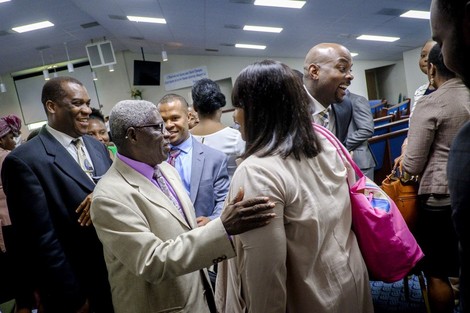Your podcast discovery platform
Curious minds select the most fascinating podcasts from around the world. Discover hand-piqd audio recommendations on your favorite topics.

piqer for: Globalization and politics Global finds
Luis BARRUETO is a journalist from Guatemala. Studied business and finance journalism at Aarhus University in Denmark and City University London.
Temporary Protection For US Migrants From Central America And Haiti: What Next?
The fate of about 100,000 Central American and Haitian migrants, who live in the United States under temporary immigration programs, will likely be disrupted in the upcoming days. The US State Department has called for an end to these protections arguing conditions in countries of origin have improved considerably, the Washington Post reports.
In a letter to Elaine Duke, Secretary of the Department of Homeland Security (DHS), US Secretary of State Rex Tillerson wrote that he believes conditions in Central America and Haiti have now improved to the point that a Temporary Protection Status (TPS) designation is no longer necessary. The DHS is bound to make a decision as early as this week.
Temporary protection for around 57,000 Hondurans and 2,500 Nicaraguans will expire in early January. But there are up to 320,000 migrants from 10 countries with permission to live and work in the US under TPS, according to Pew. In 2015, they made up 30% of the 11 million unauthorized immigrants in the US. And TPS recipients have nearly 275,000 U.S.-born children, according to the Center for American Progress.
What will happen to these people is anyone's guess.
Right now, the US administration has argued the return of TPS migrants could be a boon for Central America and Haiti, as they would return with job skills, democratic values and savings, the Miami Herald reports. Government officials "also note that the protection was never meant to be permanent and that ending it would be consistent with the administration’s aim of reducing immigration and complying with legal restrictions that have been loosely enforced in the past".
But besides risking family separation on a large scale, migrants' return en masse will likely exacerbate dire conditions on the ground. US Congressman Jim McGovern said "These countries do not have the ability to absorb or protect tens of thousands of returnees, especially given the daunting economic and security challenges confronting these nations".
He's right.
Stay up to date – with a newsletter from your channel on Globalization and politics.
